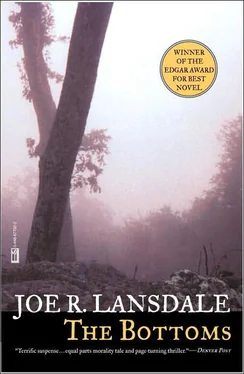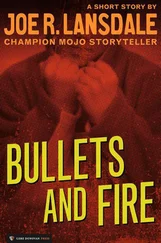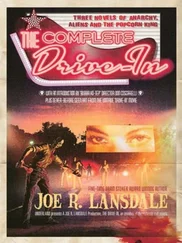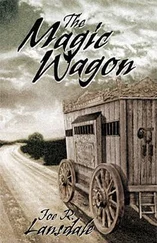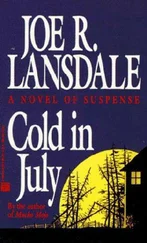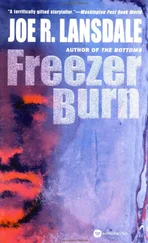Joe Lansdale - The Bottoms
Здесь есть возможность читать онлайн «Joe Lansdale - The Bottoms» весь текст электронной книги совершенно бесплатно (целиком полную версию без сокращений). В некоторых случаях можно слушать аудио, скачать через торрент в формате fb2 и присутствует краткое содержание. Жанр: Триллер, на английском языке. Описание произведения, (предисловие) а так же отзывы посетителей доступны на портале библиотеки ЛибКат.
- Название:The Bottoms
- Автор:
- Жанр:
- Год:неизвестен
- ISBN:нет данных
- Рейтинг книги:3 / 5. Голосов: 1
-
Избранное:Добавить в избранное
- Отзывы:
-
Ваша оценка:
- 60
- 1
- 2
- 3
- 4
- 5
The Bottoms: краткое содержание, описание и аннотация
Предлагаем к чтению аннотацию, описание, краткое содержание или предисловие (зависит от того, что написал сам автор книги «The Bottoms»). Если вы не нашли необходимую информацию о книге — напишите в комментариях, мы постараемся отыскать её.
The Bottoms — читать онлайн бесплатно полную книгу (весь текст) целиком
Ниже представлен текст книги, разбитый по страницам. Система сохранения места последней прочитанной страницы, позволяет с удобством читать онлайн бесплатно книгу «The Bottoms», без необходимости каждый раз заново искать на чём Вы остановились. Поставьте закладку, и сможете в любой момент перейти на страницу, на которой закончили чтение.
Интервал:
Закладка:
Daddy sighed. He looked at Mama, who smiled. Daddy said, “Well, I don’t know. He’s got chores.”
“There ain’t a lot to do this morning. I can do it for him. Me and Tom.”
“Tom will love that,” Daddy said.
“Just let him ride over. Won’t hurt him none to know what you do.”
Mama was standing behind Daddy, a hand on his shoulder. She looked at me and gave a slow wink.
Daddy didn’t say any more on the matter right then, and neither did Mama, and I had learned when he was at a bar ditch of decision it was best to just wait it out. It meant his mind wasn’t stone solid on a matter, but that things were being considered. It could go either way. If it went the way I didn’t want, I might beg, plead, or whine, but once his mind was truly made up, I could forget it. There’d be no jumping that bar ditch.
Daddy finished a second cup of coffee, then had Mama pour him a third he could take with him. He looked at me, pursed his lips, said, “You can go. But you got to stay out of the way. You ain’t doin’ nothing but riding over and ridin’ back, so get that in your head.”
“Yes sir,” I said.
Mama buttered me up a large biscuit, wrapped it in a cloth we used for a cup towel, poured me up another glass of buttermilk, gave them to me to eat on the way. We went out to the Ford, Daddy started it, and we were off.
It was exciting to ride in the car. We didn’t always use it. Saved gas that way, and according to Daddy saved on the engine. Besides, lots of places we wanted to go roads wouldn’t take us there. You had to go on foot or by mule or wagon rut. But this day was a special day. ’Cause not only would the road carry us to Pearl Creek, but I was with Daddy and going on a trip of discovery.
The sun was starting to shine bright by the time we rolled out of the yard, and while Daddy drove and tried to drink his coffee, I ate my buttered biscuit, and for the first time began to feel that I had stepped over the line of being a child, and into being a man.
It was a muddy trip, with the wet roads almost bogging us down a few times, but finally we came to Pearl Creek.
Pearl Creek was a real creek, and the name source for the town. The creek was broad in spots and fast running, and the bed of it was rich with white sand and a kind of pearl-colored gravel, hence the name. It was bordered by ancient and magnificent hickory trees and oaks, twisty, droopy willows with wrist-sized roots that worked out of the ground, wound around on the banks, looked like snakes and provided cover for the real thing.
On one side of the creek was the little town that was its namesake. To get there from our side, you had to cross a narrow, wood slat bridge, and when you did, the slats rattled beneath car tires, horse hooves, or wagon wheels like it was breaking apart beneath you.
Pearl Creek was all colored, except for old Pappy Treesome, who did not own but operated the sawmill by method of his sons, and ran the post office drop and the commissary with the aid of his wife.
Pappy had married a Negress and was scorned by the white community, accepted by the colored. In years past the Klan had waited on him as he rode his horse into town and they had taken him out, stripped and whipped him, cut off his hair, tarred and feathered him, shot his horse, run him into town on a rail held between the windows of two cars, and dropped him off in front of the commissary.
Rumor was Pappy had probably not been lynched because he had a relative in the Klan. Whatever the reason, the Klan decided a whipping, tar and feathers were enough. Pappy went back to living with the colored woman and from then on the Klan left him alone.
Pappy had children near as white as he was. It was rumored a daughter had gone up North to pass. The others, though light-skinned, weren’t white enough or didn’t care to be, and they were boys: James, Jeremiah, and Root. Two named from the Bible, and one, real name William, rumored to be nicknamed for the size of his equipment. He was also addled in the head, and known to expose himself from time to time. There really wasn’t any malice in this, and he didn’t expose himself with the intent to show anyone. He just liked fondling his own equipment, and he didn’t have the brains to know it was against convention. For this reason, Root was kept pretty much to the black community. It was feared he might go about his hobby in front of white folks, and even if he didn’t know better, the end result might be a lynching.
Pearl Creek was all about lumber. It was a sawmill community and the sawmill and the commissary were the world for most. The sawmill paid in money, but it mostly paid in tokens that could only be cashed at the commissary. It was a form of indentured servitude.
The land that was Pearl Creek had once been bottom land, and though it had been cleared of timber and built into a serviceable town, it was still soggy and mosquitoes loved the place. My Daddy used to say there were skeeters over there big enough to carry off a man and eat him and wear his shoes.
We didn’t pass another car that day, as there weren’t that many around in that part of the country then, but we did pass a few men on horseback, a boy walking, and three wagons drawn by mules.
Our car was like a rolling black beetle cooking in the sun, and by the time we crossed that little rickety bridge and arrived at boggy Pearl Creek, our clothes were stuck to us and we were red-faced and water poor.
We stopped in front of the commissary. It was a long tin-roofed building of weathered lumber with sheds out back. We got out and went over to the community water pump. This was the only place you could get running water in town, outside of the creek, and the sawmill ran dust off in that, and no telling what else. There were also a number of outhouses along the edge of the creek, and though there were many who believed long as water moved the mess along it was all right to drink, Daddy was suspicious of such and warned me to not drink out of the creek.
He said, “That ole stuff’s got somethin’ in it called microbes, Harry. They cling along the bank and on the bottom, in the moss, on rocks and such, and they get in the water and in you, and you get sick. I ain’t never seen a microbe. But I don’t doubt they’re there, smaller even than seed ticks and chiggers.”
The idea they could be microscopic was not something I think Daddy could entirely comprehend. He could imagine them small, but that small, probably not.
Daddy worked the pump for me. I ducked my head under and rubbed water over my hands and arms. Then Daddy took his turn while I pumped. Finished, he took out a pocket comb, carefully raked water from his short black hair, parted it, and gave me the comb. I made a few licks and gave it back to him and we went inside the commissary.
Daddy said, “Might as well grab a soda pop.”
That was exactly what I wanted to hear.
The commissary was the center of Pearl Creek, like it was in most sawmill towns, especially colored. East Texas was always slow to get a thing everyone else had. It wasn’t until the forties that I remember there being electricity outside of towns, and then not all towns. Marvel Creek, as I’ve said, had some electricity, but that didn’t expand or become common throughout the town and countryside until some years later.
The Rural Electrification Administration strung the wires from house to house, except for colored houses. Some coloreds got electricity a year or two behind everyone else, and some never did get it. If East Texas was last on the list to get the things everyone else already had, then the colored of East Texas got whatever it was long after the whites, and then usually an inferior version. Lincoln may have long freed the slaves, but the colored of that time were not far off living as they had lived before the Civil War.
Читать дальшеИнтервал:
Закладка:
Похожие книги на «The Bottoms»
Представляем Вашему вниманию похожие книги на «The Bottoms» списком для выбора. Мы отобрали схожую по названию и смыслу литературу в надежде предоставить читателям больше вариантов отыскать новые, интересные, ещё непрочитанные произведения.
Обсуждение, отзывы о книге «The Bottoms» и просто собственные мнения читателей. Оставьте ваши комментарии, напишите, что Вы думаете о произведении, его смысле или главных героях. Укажите что конкретно понравилось, а что нет, и почему Вы так считаете.
